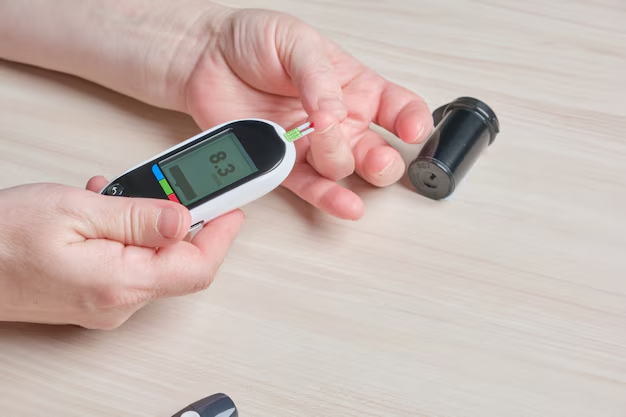Your Guide to How Does Diabetes Work
What You Get:
Free Guide
Free, helpful information about Diabetes FAQ and related How Does Diabetes Work topics.
Helpful Information
Get clear and easy-to-understand details about How Does Diabetes Work topics and resources.
Personalized Offers
Answer a few optional questions to receive offers or information related to Diabetes FAQ. The survey is optional and not required to access your free guide.
Understanding Diabetes: What You Need to Know
Diabetes is a chronic health condition that millions across the globe are now trying to understand better. So, how does diabetes actually work? At its core, diabetes deals with how your body turns food into energy and how insulin plays a crucial role in this process. Let's break it down to make it as clear and straightforward as possible.
The Role of Insulin
When you eat, your body breaks down carbohydrates into glucose, which is then released into your bloodstream. Your pancreas, an organ nestled behind your stomach, is responsible for releasing insulin, a hormone that acts as a key to let glucose into your cells for energy. In a healthy individual, this system keeps blood sugar levels well-regulated.
Type 1 and Type 2 Diabetes
There are two primary types of diabetes: Type 1 and Type 2.
Type 1 Diabetes: This form is typically diagnosed in children and young adults. It occurs when the body's immune system mistakenly attacks and destroys the insulin-producing cells in the pancreas. This leads to little or no insulin production, causing glucose to build up in the bloodstream.
Type 2 Diabetes: The most common form of diabetes, Type 2, is often linked to lifestyle factors such as poor diet, lack of exercise, and obesity. Here, the body either becomes resistant to insulin or the pancreas doesn't produce enough insulin to maintain normal blood glucose levels.
The Impact of High Blood Sugar
Persistent high blood sugar, or hyperglycemia, can have long-term adverse effects on your body:
- Cardiovascular Diseases: Increased risk of heart disease and stroke.
- Nerve Damage: Neuropathy can lead to pain or loss of sensation in affected areas.
- Kidney Damage: Impacts kidney function, possibly leading to failure.
- Vision Problems: Can cause blindness or severe vision impairments.
Managing Diabetes
For individuals living with diabetes, management is key. This includes:
- Monitoring Blood Sugar Levels: Regular checks to maintain target ranges.
- Healthy Eating: Focusing on balanced meals low in refined sugars and high in fiber.
- Regular Physical Activity: Helps to lower blood sugar levels and boosts insulin sensitivity.
- Medication: Insulin injections for Type 1, and sometimes Type 2, along with other medications to help manage blood sugar levels.
Financial Concerns and Assistance
The costs associated with managing diabetes can be daunting, encompassing medication, medical equipment, and regular check-ups. Fortunately, there are strategies to alleviate these burdens.
Financial Assistance Programs
Many people are not aware of the financial resources available to them, which can significantly ease the burden of chronic illness management.
- Government Aid Programs: Look into Medicare or Medicaid for potential coverage if you're eligible.
- Nonprofit Organizations: Groups like the American Diabetes Association can sometimes offer assistance.
- Pharmaceutical Programs: Several companies provide access to medications at reduced costs for qualifying patients.
Educational and Financial Opportunities
Living with diabetes doesn't just involve medical management; it can also have implications for your finances and education. Here's a quick guide to help:
- ☑️ Government Grants: Educational grants may be available if diabetes impacts your educational journey.
- 💳 Credit Card Solutions: Some cards offer cashback or rewards which can be used to offset diabetes-related expenses.
- 📚 Educational Workshops: Free or low-cost programs can help you better understand diabetes management and financial planning.
- 💡 Debt Relief Options: Explore plans that allow for the restructuring of outstanding medical bills to ease financial stress.
Understanding diabetes is more than just managing blood sugar levels. It's about equipping yourself with the knowledge and resources needed to lead a healthy, manageable life. Always remember, you're not in this alone, and various programs and solutions are out there to support you.
What You Get:
Free Diabetes FAQ Guide
Free, helpful information about How Does Diabetes Work and related resources.

Helpful Information
Get clear, easy-to-understand details about How Does Diabetes Work topics.

Optional Personalized Offers
Answer a few optional questions to see offers or information related to Diabetes FAQ. Participation is not required to get your free guide.


